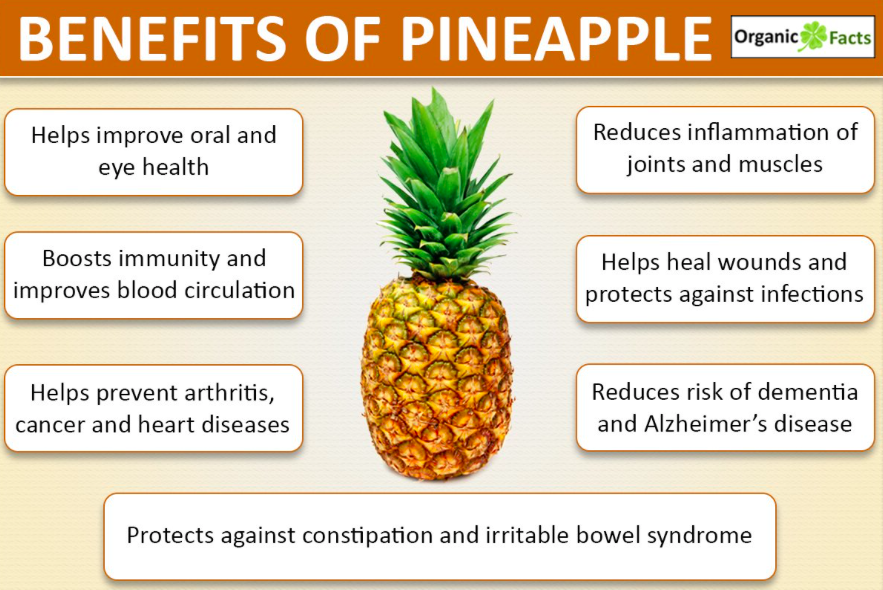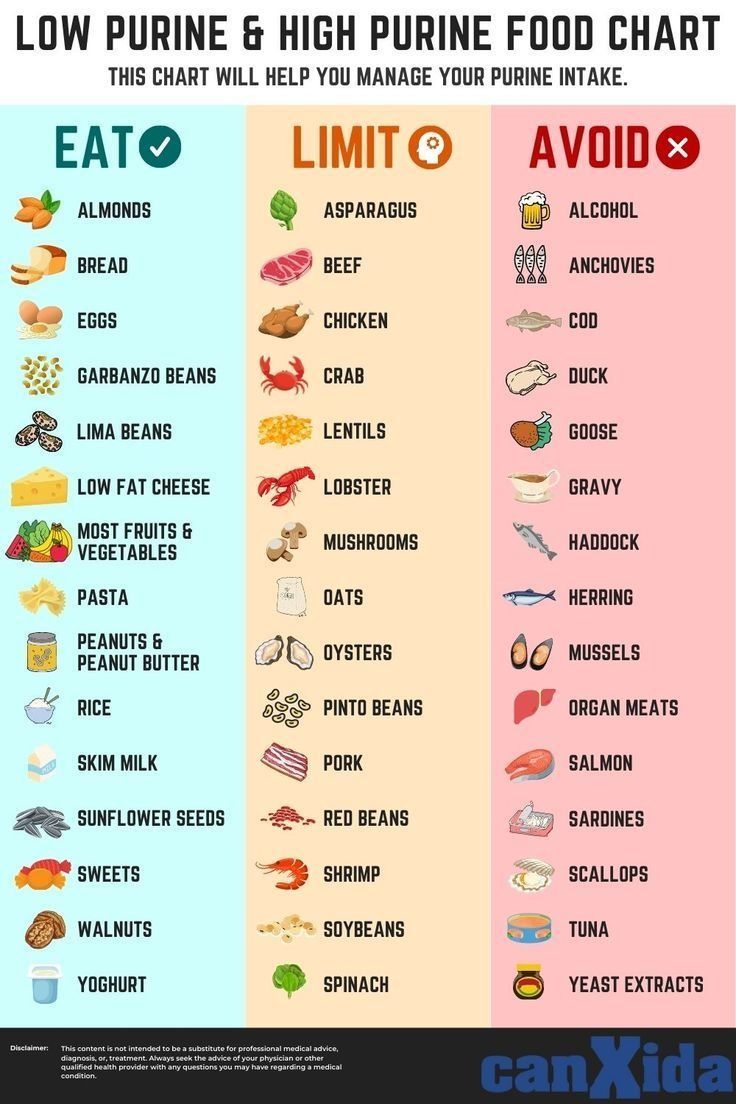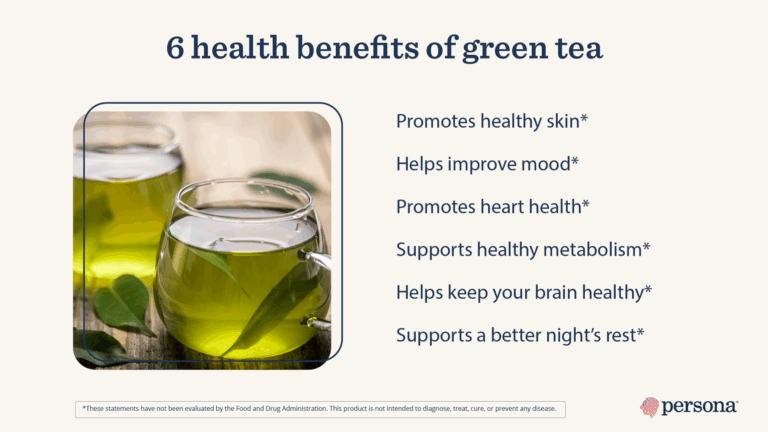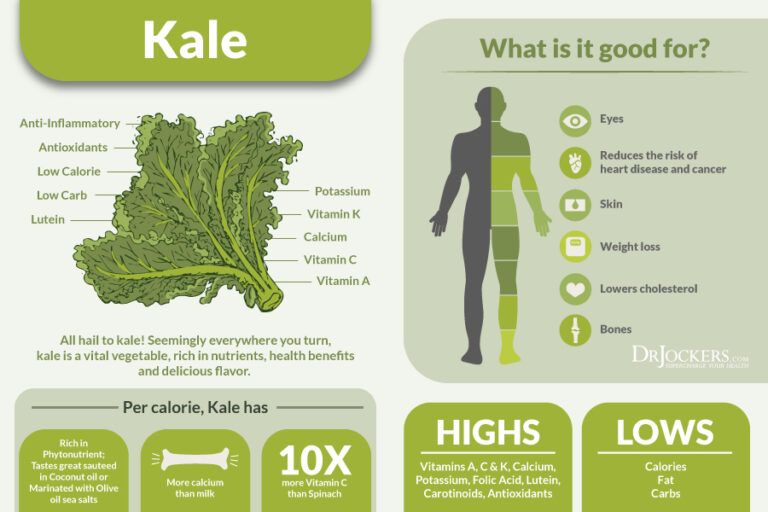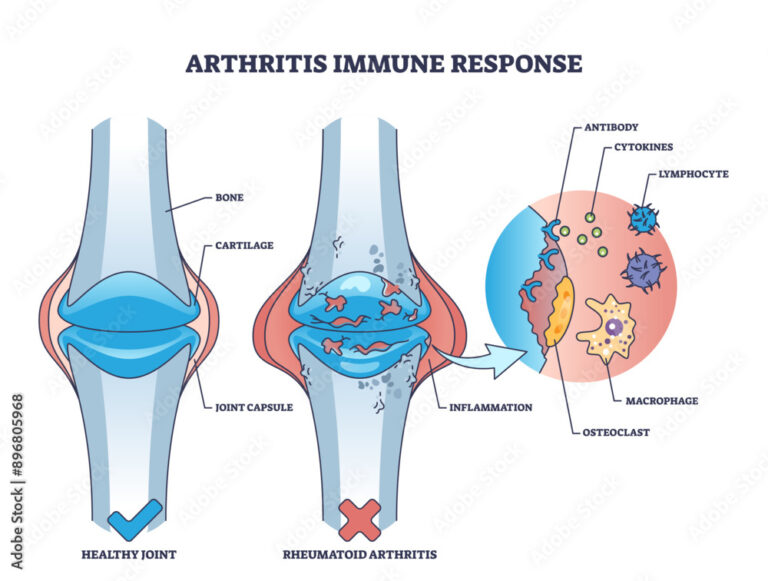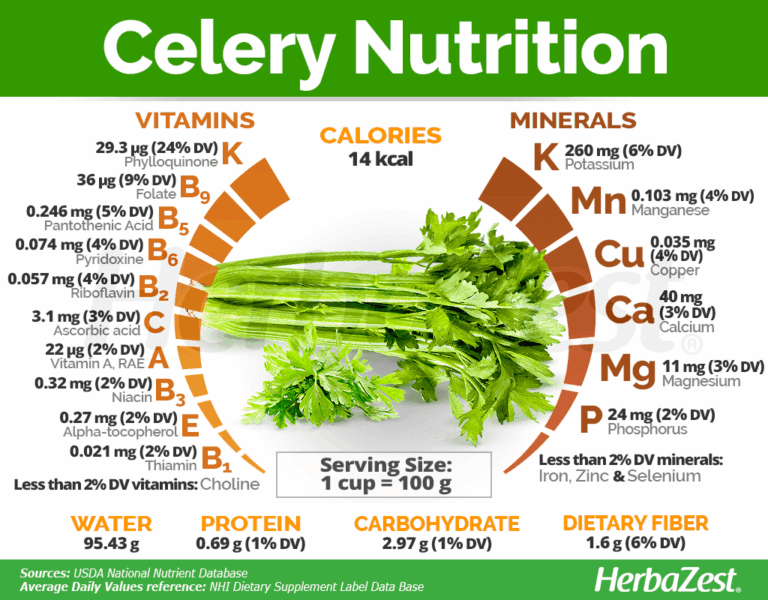From Pain Relief to Heart Health: The Golden Elixir’s Journey Through the Body
In the vibrant tapestry of tropical fruits, the pineapple stands as a majestic sentinel, its crown of spiky leaves guarding a golden, succulent flesh. More than just a symbol of hospitality and exotic indulgence, Ananas comosus harbors a profound arsenal of compounds that embark on a remarkable journey through the human body, alleviating immediate discomfort and silently fortifying the very foundations of long-term health. For centuries, indigenous cultures revered this fruit not merely for its delectable taste but for its potent medicinal properties. Today, modern science increasingly validates these ancient intuitions, unraveling the intricate mechanisms through which pineapple, from its core to its crown, offers a symphony of benefits – a narrative arc stretching from the immediate soothe of pain relief to the deep, protective embrace of cardiovascular wellness.
Our exploration begins at the point of immediate impact, where the pineapple’s most celebrated compound, bromelain, takes center stage. This unique proteolytic enzyme complex is the cornerstone of the fruit’s anti-inflammatory and pain-relieving prowess. But the story doesn’t end there; it meanders through the intricate pathways of digestion, bolsters the complex defenses of the immune system, and ultimately arrives at the heart, where its systemic influence plays a crucial role in maintaining the rhythmic pulse of life. For the knowledgeable individual seeking to understand the "why" behind the "what," this article will delve into the scientific underpinnings of pineapple’s wide-ranging gifts, revealing how this tropical gem is far more than just a sweet treat—it is a comprehensive botanical ally in the pursuit of holistic well-being.
The Immediate Soothe: Alleviating Pain and Quelling Inflammation
The most immediate and often sought-after benefit of pineapple lies in its remarkable capacity to combat pain and inflammation. This is primarily attributed to bromelain, a complex mixture of protein-digesting enzymes, along with several non-proteolytic components, naturally found in the fruit, particularly in its stem and core. Unlike single enzymes, bromelain’s efficacy stems from its synergistic action, impacting multiple inflammatory pathways simultaneously.
At a cellular level, bromelain intervenes in the body’s inflammatory cascade. It works by modulating various pro-inflammatory mediators. For instance, it has been shown to inhibit the production of prostaglandins, specifically those derived from the cyclooxygenase-2 (COX-2) pathway, which are key instigators of pain and swelling. While synthetic NSAIDs target this pathway, bromelain offers a natural alternative, often with fewer gastrointestinal side effects. Furthermore, bromelain can reduce the levels of bradykinin, a peptide that contributes significantly to pain perception and vasodilation, thereby diminishing swelling and localized discomfort.
Beyond these direct inhibitions, bromelain exerts its anti-inflammatory effects by influencing cytokine profiles. It can suppress the release of pro-inflammatory cytokines such as Tumor Necrosis Factor-alpha (TNF-α) and Interleukin-6 (IL-6), while potentially enhancing the production of anti-inflammatory cytokines. This nuanced immunomodulatory effect allows bromelain to fine-tune the body’s inflammatory response, preventing it from spiraling into chronic, damaging states.
The practical applications of bromelain’s anti-inflammatory and analgesic properties are extensive. It has garnered significant attention in the realm of post-surgical recovery, where studies have demonstrated its ability to significantly reduce post-operative swelling, bruising (ecchymosis), and pain following various procedures, including wisdom tooth extraction, nasal surgery, and orthopedic interventions like knee or hip replacements. By accelerating the breakdown of fibrin, a protein involved in blood clot formation and tissue repair, bromelain helps to clear cellular debris and reduce edema, leading to faster healing and improved patient comfort.
For individuals suffering from arthritic conditions, particularly osteoarthritis and rheumatoid arthritis, pineapple offers a glimmer of hope. Bromelain’s ability to reduce inflammation in the joints translates into decreased pain, improved mobility, and reduced stiffness. While not a cure, it can serve as a valuable complementary therapy, helping to manage symptoms and improve quality of life. Athletes and active individuals also frequently turn to bromelain for relief from sports injuries such as sprains, strains, and muscle soreness. Its capacity to mitigate inflammation and aid in tissue repair makes it an excellent natural adjunct for recovery, allowing a quicker return to physical activity.
Beyond musculoskeletal pain, bromelain also exhibits mucolytic properties, meaning it can thin mucus. This makes it beneficial in managing conditions like sinusitis and other respiratory issues, where thick mucus and inflammation contribute to congestion and discomfort. By breaking down mucus, bromelain facilitates its expulsion, thereby alleviating pressure and improving breathing.
Crucially, the pain relief offered by pineapple is not solely due to bromelain. The fruit is also an excellent source of Vitamin C, a potent antioxidant that combats oxidative stress, a key driver of inflammation. Oxidative stress can damage cells and trigger inflammatory responses; by neutralizing free radicals, Vitamin C indirectly supports the anti-inflammatory cascade. Furthermore, pineapple provides manganese, a trace mineral vital for bone formation and the synthesis of connective tissues, which are essential for maintaining the integrity of joints and reducing the risk of pain associated with structural degradation.
Digestive Harmony: A Gut Feeling of Wellness
The journey of pineapple’s benefits extends deeply into the digestive system, where its enzymatic and fiber content orchestrate a symphony of gut health. This connection to the gut is fundamental, as a healthy digestive tract is increasingly recognized as the cornerstone of overall well-being, influencing everything from immunity to mood.
Bromelain, the multifaceted enzyme complex, plays a significant role in protein digestion. As a proteolytic enzyme, it breaks down complex proteins into smaller peptides and amino acids, making them easier for the body to absorb. This is particularly beneficial for individuals who may have compromised digestive enzyme production, such as those with pancreatic insufficiency, or those experiencing low stomach acid (hypochlorhydria). By aiding in protein breakdown, bromelain can reduce feelings of indigestion, bloating, and gas that often accompany incomplete protein digestion. Moreover, efficient nutrient absorption ensures the body receives the building blocks it needs for repair and maintenance.
Beyond its enzymatic action, pineapple is an excellent source of dietary fiber, containing both soluble and insoluble types. Insoluble fiber acts as a natural bulking agent, adding mass to stool and promoting regular bowel movements. This is crucial for preventing constipation, a common ailment that can lead to discomfort and contribute to toxin buildup. Soluble fiber, on the other hand, dissolves in water to form a gel-like substance. This slows down digestion, helping to stabilize blood sugar levels, and perhaps most importantly, acts as a prebiotic. Prebiotics are non-digestible food components that selectively stimulate the growth and activity of beneficial bacteria (probiotics) in the colon. A thriving gut microbiome, rich in diverse beneficial bacteria, is linked to improved nutrient absorption, synthesis of certain vitamins (like B vitamins and Vitamin K), and enhanced immune function.
The high water content of pineapple further contributes to digestive health. Adequate hydration is essential for softening stool, facilitating its passage through the intestines, and preventing dehydration, which can exacerbate constipation. Combined, the fiber and water content of pineapple contribute to satiety, helping individuals feel fuller for longer, which can be a valuable aid in weight management. By promoting regularity and supporting a healthy gut microbiome, pineapple indirectly impacts the entire spectrum of metabolic processes.
The burgeoning field of the gut-brain axis highlights the intricate communication network between the digestive system and the central nervous system. A healthy gut, nourished by foods like pineapple, can positively influence mood, cognitive function, and even alleviate symptoms of anxiety and depression. While pineapple’s direct impact on the gut-brain axis is still an area of evolving research, its foundational support for gut health undeniably contributes to a broader sense of well-being, radiating outwards from the core of our being.
Immune System Fortification: Shielding the Body
In an age where immune resilience is paramount, pineapple emerges as a valuable dietary ally, offering a potent blend of vitamins, minerals, and enzymes that bolster the body’s natural defenses. Its immune-boosting capabilities extend beyond simple anecdotal wisdom, rooted deeply in its rich nutritional profile.
The most prominent immune-enhancing nutrient in pineapple is Vitamin C (ascorbic acid). Pineapple is an excellent source, with a single cup providing a significant portion of the recommended daily intake. Vitamin C is a powerful antioxidant, protecting immune cells from oxidative stress induced by free radicals, which are generated during normal metabolic processes and in response to environmental toxins. By neutralizing these damaging molecules, Vitamin C ensures the integrity and optimal function of immune cells.
Furthermore, Vitamin C plays a crucial role in the production and function of various white blood cells, including phagocytes and lymphocytes, which are the frontline defenders against pathogens. It enhances the activity of natural killer (NK) cells, a type of lymphocyte that detects and destroys virus-infected cells and tumor cells. Vitamin C is also essential for the synthesis of collagen, a structural protein vital for maintaining the integrity of skin and mucous membranes – the body’s first line of defense against invading microorganisms. A robust physical barrier is as important as a robust cellular immune response.
Beyond Vitamin C, bromelain once again demonstrates its versatility by exerting significant immunomodulatory effects. Research suggests that bromelain can enhance certain aspects of the immune response while suppressing others, helping to maintain a balanced and appropriate immune reaction. It has been shown to increase the activity of natural killer cells, bolstering the body’s ability to fight off viral infections and potentially offering some anti-cancer benefits (though this area requires further research). Bromelain can also modulate T-cell responses and influence the expression of adhesion molecules, which are critical for immune cell trafficking and interaction. By fine-tuning these processes, bromelain helps the immune system respond effectively to threats without overreacting, a common issue in autoimmune conditions.
While bromelain itself doesn’t directly kill bacteria or viruses, its anti-inflammatory and mucolytic properties can indirectly support immune function. By reducing inflammation in the respiratory tract, for instance, it can alleviate symptoms of colds and flu, and by thinning mucus, it can help clear pathogens from the airways.
Other micronutrients found in pineapple, though in smaller quantities, contribute synergistically to immune health. Manganese is involved in antioxidant defense systems, while various B vitamins play roles in energy metabolism and cellular function, indirectly supporting the energetic demands of a robust immune response. Copper and zinc, though less abundant, are trace minerals critical for enzyme function and immune cell development.
In essence, pineapple provides a comprehensive package of nutrients that work in concert to fortify the immune system. From antioxidant protection and enhanced white blood cell activity to the nuanced immunomodulation by bromelain, this golden fruit helps the body mount a strong, yet controlled, defense against a myriad of challenges, paving the way for sustained health.
From Blood Flow to Beat: Cultivating Cardiovascular Health
The journey of pineapple’s benefits culminates in one of the most critical systems of the body: the cardiovascular system. While its immediate effects on pain and digestion are often more palpable, the long-term, systemic contributions of pineapple to heart health are equally, if not more, profound, weaving together its anti-inflammatory, antioxidant, and unique enzymatic properties.
Chronic inflammation is now recognized as a significant underlying factor in the development and progression of atherosclerosis, the hardening and narrowing of arteries that leads to heart disease, strokes, and peripheral artery disease. The sustained anti-inflammatory effects of bromelain and the abundant antioxidants (especially Vitamin C) in pineapple play a pivotal role here. By reducing systemic inflammation, they mitigate the damage to arterial walls, preventing the initiation and progression of plaque formation. Oxidative stress, which Vitamin C and other antioxidants combat, also contributes to the oxidation of LDL cholesterol, making it more prone to accumulation in arterial walls. Pineapple’s antioxidant shield helps protect against this damaging process.
Perhaps one of the most intriguing and direct links to heart health lies in bromelain’s anti-platelet and fibrinolytic properties. Platelets are tiny blood cells that play a crucial role in blood clotting. While essential for stopping bleeding, excessive platelet aggregation can lead to the formation of dangerous clots (thrombi) that can block arteries, resulting in heart attacks or strokes. Bromelain has been shown to inhibit platelet aggregation, effectively making the blood less "sticky" and reducing the risk of clot formation. This natural blood-thinning effect is a powerful asset in cardiovascular protection.
Furthermore, bromelain exhibits fibrinolytic activity, meaning it can break down fibrin, a protein that forms the meshwork of blood clots. This dual action – preventing new clot formation and potentially dissolving existing fibrin – positions bromelain as a significant natural compound for maintaining healthy blood flow and reducing the risk of thrombotic events. It’s important to note that due to these effects, individuals on prescribed anticoagulant or antiplatelet medications (like warfarin or aspirin) should exercise caution and consult their physician before significantly increasing pineapple intake or taking bromelain supplements, as there is a potential for additive effects.
Pineapple’s contribution to cardiovascular health extends beyond bromelain. It is a good source of potassium, an essential electrolyte that plays a critical role in maintaining healthy blood pressure. Potassium helps to balance sodium levels in the body, promoting the excretion of excess sodium through urine. High sodium intake is a well-known contributor to hypertension (high blood pressure). By supporting this sodium-potassium balance, pineapple helps to relax blood vessel walls (vasodilation), thereby reducing the strain on the heart and arteries.
The dietary fiber content, as discussed earlier for digestive health, also significantly impacts heart health. Soluble fiber, in particular, can help lower LDL ("bad") cholesterol levels by binding to cholesterol in the digestive tract and facilitating its excretion. This reduction in circulating LDL cholesterol is a cornerstone of preventing atherosclerotic plaque buildup. Moreover, fiber helps regulate blood sugar levels, preventing the spikes and crashes that can damage blood vessels over time, contributing to diabetic complications and accelerated atherosclerosis.
Finally, Vitamin C not only acts as an antioxidant but also plays a role in enhancing the production of nitric oxide, a powerful vasodilator that helps relax and widen blood vessels, improving blood flow and further contributing to healthy blood pressure. Its protective effect against LDL oxidation also means less "sticky" and damaging cholesterol in the bloodstream.
In summary, pineapple offers a multi-pronged approach to cardiovascular wellness. From reducing chronic inflammation and protecting against oxidative damage to inhibiting platelet aggregation and balancing blood pressure, its diverse nutrient profile works harmoniously to safeguard the heart and circulatory system. It’s a testament to how a single fruit can impact systemic health in such profound and interconnected ways, making it a truly golden elixir for the heart.
Beyond the Core Benefits: Other Noteworthy Contributions
While pain relief, digestive harmony, immune fortification, and cardiovascular health represent the major pillars of pineapple’s benefits, its nutritional wealth extends to several other crucial areas of well-being, underscoring its holistic value.
Bone Health: Pineapple contributes to the strength and integrity of our skeletal system, primarily through its significant content of manganese. This trace mineral is vital for the development and maintenance of healthy bones. It acts as a cofactor for enzymes involved in bone formation and cartilage synthesis. Additionally, the Vitamin C in pineapple is essential for collagen synthesis, which forms the organic matrix of bone, providing its flexible framework before mineralization. By supporting both the mineral and organic components of bone, pineapple contributes to overall bone density and resilience.
Skin Health: The quest for radiant skin often leads to expensive creams and treatments, yet simple dietary choices like incorporating pineapple can yield remarkable results. Its high Vitamin C content is a powerhouse for skin health. As mentioned, Vitamin C is indispensable for collagen production, the protein that gives skin its elasticity, firmness, and youthful appearance. Adequate collagen helps to reduce the appearance of wrinkles and fine lines. Furthermore, Vitamin C’s potent antioxidant properties protect skin cells from damage caused by UV radiation and environmental pollutants, reducing oxidative stress that can lead to premature aging and skin dullness. The fruit’s high water content also contributes to skin hydration, keeping it plump and supple.
Eye Health: As we age, the risk of certain eye conditions increases. Pineapple’s rich antioxidant profile, particularly its Vitamin C content, may play a protective role against age-related macular degeneration (AMD) and cataracts. Antioxidants help to protect the delicate cells of the eyes from oxidative damage, which is a key factor in the progression of these conditions. While not a standalone treatment, regular consumption of antioxidant-rich fruits like pineapple contributes to a dietary pattern that supports long-term eye health.
Potential Anti-Cancer Properties (Preliminary Research): This is an area of ongoing and exciting research, primarily focusing on bromelain. While far from a definitive anti-cancer drug, preliminary in vitro (test tube) and in vivo (animal) studies have suggested that bromelain may possess anti-proliferative and apoptotic effects in various cancer cell lines. This means it might be able to inhibit the growth of cancer cells and induce programmed cell death. Some research also indicates bromelain’s potential to modulate immune responses against cancer cells and inhibit metastasis. It is crucial to emphasize that these findings are preliminary and current evidence does not support pineapple or bromelain as a treatment for cancer in humans. However, as part of a diet rich in fruits and vegetables, its antioxidant and anti-inflammatory properties contribute to a general cancer-preventive lifestyle.
Weight Management: While not a magic bullet, pineapple can be a valuable component of a weight management strategy. Its high fiber content promotes satiety, helping individuals feel full and reduce overall calorie intake. It is also relatively low in calories and fat, making it an excellent snack or dessert alternative to more calorie-dense options. The natural sweetness can satisfy cravings without resorting to refined sugars, and its hydration properties contribute to overall metabolic health.
These additional benefits highlight pineapple’s multifaceted nature, demonstrating that its contribution to wellness extends far beyond the immediate and visible, touching nearly every system within the human body.
Incorporating Pineapple into Your Diet: Practical Advice
Harnessing the wide-ranging benefits of pineapple is as simple as incorporating it regularly into your diet. However, a few considerations can optimize your intake and ensure you reap the maximum rewards.
Fresh is Best: For optimal bromelain activity, fresh pineapple is always preferred. Canned pineapple, especially varieties packed in syrup and those subjected to high heat pasteurization, can significantly reduce or even eliminate bromelain’s enzymatic activity. The heat processing denatures the enzymes. If fresh isn’t an option, look for frozen pineapple, which often retains more of its nutritional value and enzyme activity compared to heavily processed canned versions.
Understanding Bromelain’s Location: While the entire fruit contains some bromelain, the core and stem are particularly rich in this enzyme. Many people discard the core due to its tougher texture, but blending it into smoothies or finely chopping it can be an effective way to consume more bromelain.
Culinary Versatility: Pineapple’s sweet and tangy flavor makes it incredibly versatile in the kitchen:
- Snacks: Enjoy fresh slices or chunks on their own.
- Smoothies: Blend with other fruits, leafy greens, and a liquid base for a nutrient-packed meal or snack. This is an excellent way to include the core.
- Salads: Add a tropical twist to fruit salads or even savory green salads with grilled chicken or shrimp.
- Savory Dishes: Pineapple pairs surprisingly well with savory flavors. Think grilled pineapple rings with pork or chicken, in stir-fries, or even on homemade pizza.
- Desserts: Create healthier desserts like grilled pineapple with a sprinkle of cinnamon, or a pineapple salsa to top yogurt or cottage cheese.
Optimal Timing for Bromelain: If your primary goal is to leverage bromelain’s digestive aid properties, consume fresh pineapple with or immediately after meals. If you’re seeking its systemic anti-inflammatory and pain-relieving effects, consuming it between meals on an empty stomach might be more effective. This allows the bromelain to be absorbed into the bloodstream without being primarily utilized for protein digestion in the gut.
Considerations and Cautions:
- Allergies: While rare, some individuals may experience an allergic reaction to pineapple, manifesting as itching, swelling of the mouth or throat, or skin rashes.
- Acidity: Pineapple is acidic and can sometimes cause irritation in individuals prone to acid reflux or those with sensitive mouths. Eating it in moderation or pairing it with other foods can help.
- Sugar Content: While natural, pineapple contains natural sugars. Individuals with diabetes should monitor their intake and consider portion sizes as part of their overall carbohydrate management plan.
- Interactions with Medications: As noted, bromelain’s anti-platelet properties mean individuals on blood-thinning medications (anticoagulants or antiplatelets) should consult their doctor before significantly increasing pineapple consumption or taking bromelain supplements. It may also interact with certain antibiotics, increasing their absorption.
By keeping these practical tips in mind, one can easily integrate this golden fruit into a daily routine, transforming a delicious treat into a powerful tool for enhanced health and well-being.
The Science Behind the Sweetness: Understanding the Research Landscape
The journey from anecdotal evidence to scientific validation is a long and rigorous one, and pineapple, particularly its bromelain complex, has traversed much of it. A knowledgeable audience appreciates the distinction between traditional use and evidence-based medicine, and in pineapple’s case, there’s a growing body of scientific literature supporting its diverse health claims.
The extensive research on bromelain stands out. Since its isolation in the late 19th century, countless in vitro, in vivo, and human clinical trials have explored its multifaceted actions. These studies have meticulously elucidated its mechanisms, identifying its impact on cytokine modulation, prostaglandin synthesis, fibrinolysis, and immunomodulatory pathways. The research often differentiates between the effects of bromelain extracted from the stem (stem bromelain) and that found in the fruit (fruit bromelain), noting slight variations in their enzymatic compositions and optimal activities. While many studies have focused on isolated bromelain supplements, an increasing number acknowledge the synergistic benefits of consuming the whole fruit, where bromelain works alongside other antioxidants, vitamins, and fiber.
It’s crucial to understand that while isolated compounds like bromelain can be studied for specific pharmacological effects, the whole fruit offers a broader spectrum of benefits due to the interplay of its numerous components. The Vitamin C, manganese, fiber, and other phytochemicals in pineapple contribute to a holistic effect that may not be fully replicated by a single isolated supplement. This concept of synergy is a cornerstone of nutritional science, where the sum is often greater than its individual parts.
The research landscape also highlights the importance of dosage and bioavailability. The amount of bromelain in a typical serving of fresh pineapple, while beneficial, might be lower than the therapeutic doses used in some clinical trials involving bromelain supplements. This implies that for certain acute conditions (e.g., severe post-surgical swelling), a standardized bromelain supplement might be more effective than relying solely on dietary intake. However, for general health maintenance and long-term preventive benefits, consistent consumption of fresh pineapple remains a highly effective strategy.
Future research directions continue to explore bromelain’s potential in areas like cancer adjunctive therapy, chronic inflammatory diseases, and even as a delivery enhancer for other drugs. As our understanding of the complex interplay between diet and health deepens, the humble pineapple continues to reveal new layers of its therapeutic potential, inviting continuous scientific inquiry.
Conclusion: A Golden Legacy of Wellness
The journey of pineapple through the human body is a testament to nature’s profound pharmacy, a narrative that begins with the immediate comfort of pain relief and culminates in the deep, systemic protection of cardiovascular health. From the potent enzymatic action of bromelain that quells inflammation and aids digestion, to the antioxidant prowess of Vitamin C that fortifies the immune system and safeguards the heart, pineapple emerges as a truly holistic ally in the pursuit of well-being.
We have explored how this golden fruit, far beyond its sweet and tangy appeal, actively participates in the body’s intricate processes: calming the fires of inflammation, harmonizing the gut’s delicate ecosystem, building robust immune defenses, and diligently protecting the vital rhythm of the heart. Its contributions extend further, touching bone health, skin radiance, eye vitality, and even hinting at broader anti-cancer potential, painting a comprehensive picture of its immense value.
In a world increasingly seeking natural solutions and preventive health strategies, the pineapple stands as a vibrant beacon of botanical wisdom. It reminds us that often, the most potent medicines are found not in complex laboratories, but in the simple, sun-kissed bounty of the earth. By embracing this tropical marvel, we not only indulge our senses but also embark on a deliberate journey towards enhanced health, allowing this golden elixir to nourish, protect, and revitalize us from within. Let the story of pineapple inspire a deeper appreciation for the power of whole foods, inviting us to integrate this extraordinary fruit into our lives, and in doing so, cultivate a richer, healthier existence.
